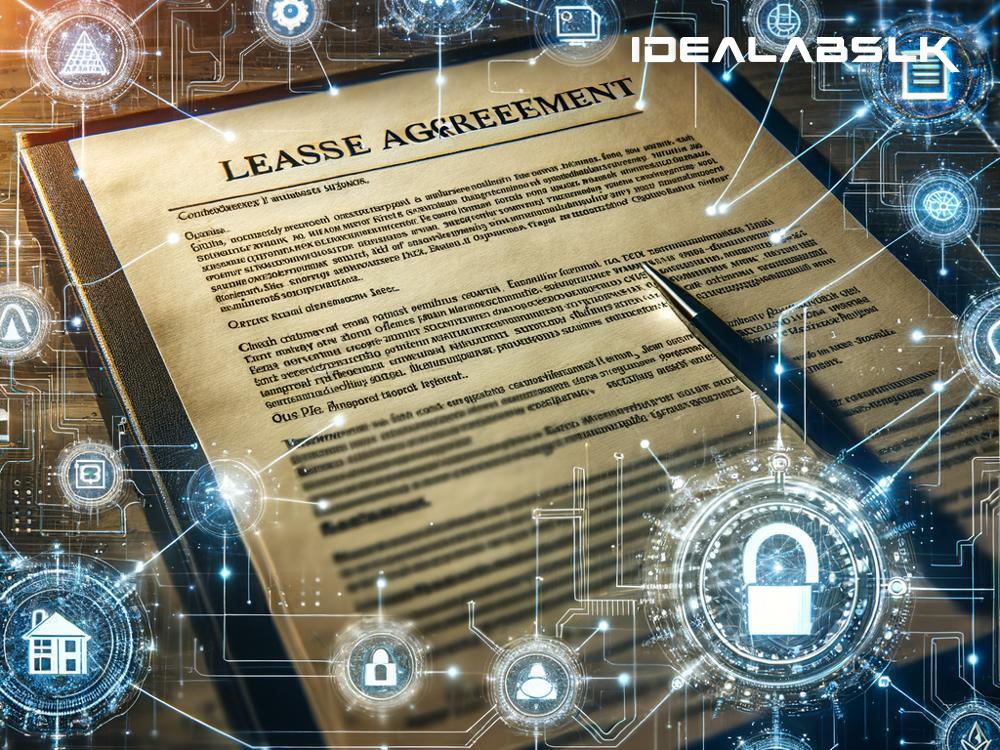Blockchain for Real Estate Lease Management: Simplifying the Complex
Real estate is an industry that touches nearly everyone in some form—whether you're renting an apartment, leasing office space, or managing properties for others. Yet, despite its ubiquity, the real estate world is often bogged down by inefficiencies: complex paperwork, lack of transparency, and slow processes. Enter Blockchain, a technology that promises to transform how we manage real estate leases, making everything more secure, transparent, and efficient.
Understanding Blockchain
Before we dive into its applications in real estate lease management, let's break down what Blockchain is. Imagine a digital ledger that is completely secure, transparent, and tamper-proof. This ledger records transactions across many computers so that any recorded transaction cannot be altered retroactively, without the alteration of all subsequent blocks and the collusion of the network. This is the core principle of Blockchain.
The Challenges of Traditional Lease Management
Lease management, as it stands, involves a multitude of steps including document management, payments, maintenance requests, and more. These processes are often paper-based, prone to human error, and require a significant amount of manual labor. Additionally, the lack of transparency can lead to disputes between landlords and tenants, creating a fraught relationship that could have been easily avoided.
How Blockchain Can Help
Blockchain technology has the potential to radically streamline real estate lease management. Here’s how:
-
Smart Contracts: These are self-executing contracts where the terms are written directly into code. In the context of real estate leases, smart contracts can automate rent payments, security deposit handling, and even the enforcement of lease terms. This means no more late rent payments, and lease terms are automatically adhered to by both parties.
-
Transparency and Security: With Blockchain, every transaction is recorded and can’t be changed or deleted, providing a transparent and secure ledger of all activities. This is incredibly useful for maintaining trust in the landlord-tenant relationship, as both parties have access to an immutable history of transactions and interactions.
-
Efficiency and Speed: The digitization of lease contracts on Blockchain can drastically cut down on the time required to process these documents. Since smart contracts automate many aspects of lease management, processes that once took days can now be completed in minutes.
-
Reduced Costs: By automating many aspects of lease management, landlords can save on the administrative costs associated with lease management. Additionally, because Blockchain can streamline and speed up transactions, costs related to payment processing and document handling are also reduced.
Real-World Examples
While the use of Blockchain in real estate lease management is still emerging, there are already some compelling examples of its application:
-
Rent Payments: Blockchain platforms allow for the secure, direct transfer of rent payments from tenant to landlord, reducing the need for third-party payment processors and thereby lowering transaction fees.
-
Lease Agreement Execution: Start-ups are developing platforms where lease agreements can be created, negotiated, signed, and stored on a Blockchain, making them secure, easily accessible, and immutable.
-
Property Management: Imagine a scenario where tenants report maintenance issues through a Blockchain platform, creating an immutable record of the report and its resolution. Not only does this improve efficiency, but it also enhances accountability for property managers.
Looking to the Future
As exciting as these developments are, we're just scratching the surface of what's possible with Blockchain in real estate lease management. Future applications could include more complex property management solutions, integrating IoT (Internet of Things) devices for smarter buildings, or even tokenization of property, allowing for new investment opportunities.
However, it’s important to note that there are challenges ahead. The widespread adoption of Blockchain in real estate requires significant changes in legislation, as well as the acceptance and understanding of the technology by all parties involved. Despite these hurdles, the potential benefits of Blockchain for real estate lease management are undeniable.
Conclusion
Blockchain technology represents a significant shift in how we can manage and streamline real estate leases. By providing a secure, transparent, and efficient system, Blockchain can not only save time and money but also improve the relationships between landlords and tenants by building trust and reducing disputes. As we continue to explore and develop applications for Blockchain in this field, we might just be on the cusp of a real estate revolution.

